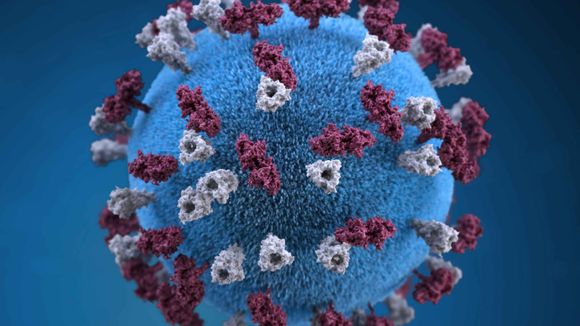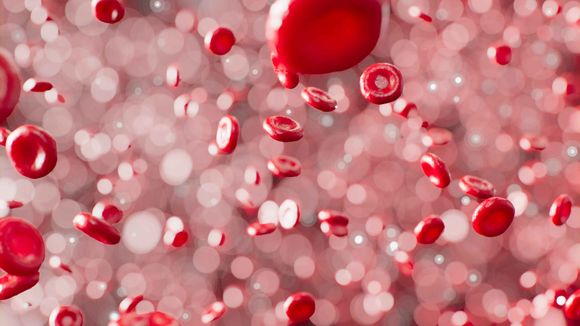Symptoms associated with leukopenia
- Fatigue
- Frequent infections
- Slow healing of wounds
- Fever
- Shortness of breath
- Weakness
Possible causes of leukopenia
Autoimmune diseases
- Systemic Lupus Erythematosus (SLE): A chronic inflammatory disease that can affect multiple organs, including the skin, joints, kidneys, and heart. The immune system mistakenly attacks healthy cells and tissues, which can lead to leukopenia.
- Rheumatoid Arthritis (RA): A chronic autoimmune disorder that primarily affects the joints, causing pain, stiffness, and inflammation. RA can also impact the production of white blood cells, resulting in leukopenia.
- Consult a rheumatologist for these conditions.
Bone marrow disorders
- Aplastic Anemia: A rare condition where the bone marrow fails to produce enough new blood cells, including white blood cells, red blood cells, and platelets. It can be caused by exposure to radiation, certain medications, or viral infections.
- Myelodysplastic Syndromes (MDS): A group of disorders where the bone marrow does not produce enough healthy blood cells, which can lead to low white blood cell counts. MDS can be a result of genetic mutations, exposure to radiation or certain chemicals, or can occur without a known cause.
- Consult a hematologist for these conditions.

Photo by CDC on Unsplash
Viral infections
- Human Immunodeficiency Virus (HIV): A virus that attacks the immune system, specifically targeting CD4 cells (a type of white blood cell), leading to a weakened immune system and increased vulnerability to infections.
- Hepatitis: An inflammation of the liver caused by various viruses, such as hepatitis A, B, and C. These viruses can impair the liver's ability to produce white blood cells, contributing to leukopenia.
- Consult an infectious disease specialist for these conditions.
Cancer and Cancer Treatment
- Leukemia: A type of cancer that begins in the bone marrow and results in the production of abnormal white blood cells. These abnormal cells crowd out healthy blood cells, leading to a decrease in normal white blood cell count.
- Chemotherapy and radiation therapy: Cancer treatments that target rapidly dividing cells, including white blood cells. These treatments can inadvertently damage the bone marrow, causing a temporary reduction in white blood cell production.
- Consult an oncologist for these conditions.
Nutritional deficiencies
- Vitamin B12 deficiency: This essential vitamin plays a crucial role in the production of blood cells, and a deficiency can lead to a decrease in white blood cell count.
- Folate deficiency: Folate, or vitamin B9, is also important for blood cell production, and a deficiency can contribute to leukopenia.
- Consult a primary care physician, nutritionist, or dietitian for these conditions.
Possible side effects of medical drugs that can cause leukopenia:
- Antibiotics: e.g., penicillin, cephalosporins, and vancomycin
- Anticonvulsants: e.g., phenytoin, carbamazepine, and valproic acid
- Antithyroid medications: e.g., methimazole and propylthiouracil
- Immunosuppressive drugs: e.g., cyclosporine and tacrolimus

Photo by Jo Szczepanska on Unsplash
Herbal and natural remedies for leukopenia
- Astragalus (Astragalus membranaceus): Boosts the immune system and improves white blood cell production.
- Echinacea (Echinacea purpurea): Stimulates the immune system and promotes white blood cell production.
- Ginseng (Panax ginseng): Enhances immune function and supports overall health.
- Cat's claw (Uncaria tomentosa): Helps boost the immune system and improves overall health.
Suggestions for Changing Bad Living Habits
- Maintain a balanced diet rich in fruits, vegetables, and whole grains
- Exercise regularly
- Manage stress through relaxation techniques such as meditation and yoga
- Get adequate sleep
- Limit alcohol consumption and quit smoking
Questions and answers
Below are ten frequently asked questions that are not covered in the article:
Q: What is the normal range for white blood cell count?
A: The normal range for white blood cell count is 4,000 to 11,000 cells per microliter of blood.
Q: How can I increase my white blood cell count naturally?
A: Eating a balanced diet, exercising regularly, managing stress, and getting enough sleep can help improve your white blood cell count.
Q: Can stress cause?
A: Yes, stress can contribute to a decreased white blood cell count. Prolonged stress can have a negative impact on the immune system, which may result in lower white blood cell levels.
Q: Can leukopenia be cured?
A: Treatment for leukopenia depends on the underlying cause. In some cases, treating the cause or removing the trigger (e.g., certain medications) can resolve the low white blood cell count. In other cases, ongoing management may be required.
Q: Is leukopenia a sign of cancer?
A: Leukopenia can be a sign of cancer, particularly leukemia, which affects white blood cell production in the bone marrow. However, not all cases of leukopenia are related to cancer. It is essential to consult a doctor for proper diagnosis and treatment.
Q: What are the consequences of having a low white blood cell count?
A: A low white blood cell count can lead to an increased risk of infections, slower healing of wounds, and a weakened immune system, making it harder for your body to fight off illnesses.
Q: Can certain foods help increase white blood cell count?
A: Yes, certain foods can help improve white blood cell count, such as those rich in vitamin C (e.g., citrus fruits, strawberries, and kiwi), zinc (e.g., oysters, red meat, and poultry), and selenium (e.g., Brazil nuts, tuna, and sunflower seeds).
Q: Are there any risks associated with using herbal remedies for leukopenia?
A: Herbal remedies can have side effects and interact with medications. It is crucial to consult with a healthcare professional before starting any herbal treatment to ensure it is safe and appropriate for your specific situation.
Q: How is leukopenia diagnosed?
A: Leukopenia is typically diagnosed through a blood test called a complete blood count (CBC), which measures the number of white blood cells, red blood cells, and platelets in your blood.
Q: Is leukopenia contagious?
A: No, leukopenia is not contagious. It is a medical condition caused by various factors, including diseases and medications, and cannot be transmitted from one person to another.









